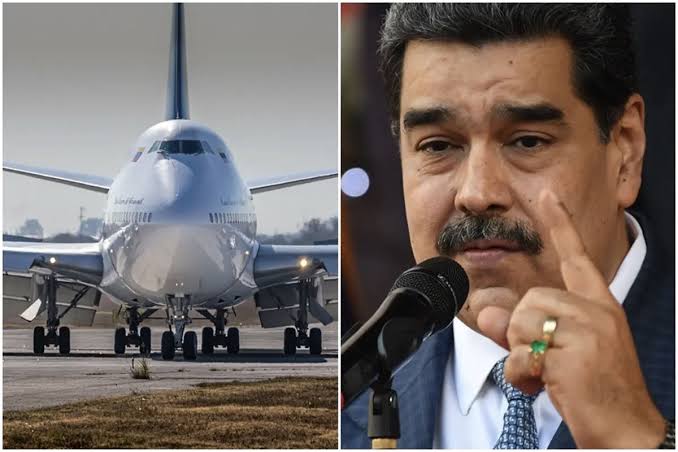The United States government has seized Venezuela President Nicolas Maduro’s airplane saying that its acquisition was in violation of US sanctions, among other criminal issues.
The US flew the aircraft from the Dominican Republic to Florida on Monday, according to US officials.
The seizure of the aircraft in the Dominican Republic marks an escalation of the frosty relationship between Venezuela and the US as the Biden administration continues to investigate allegedly corrupt practices by Venezuela’s government.
The plane was described by US officials as Venezuela’s equivalent to Air Force One and it has been pictured in previous state visits by Maduro around the world.

The plane, a Dassault Falcon 900, according to flight records, is estimated to cost around $13 million and has been in the Dominican Republic in recent months. US officials didn’t disclose why, but it presented an opportunity for US officials to seize the aircraft.
“This sends a message all the way up to the top,” one of the US officials told CNN.
“Seizing the foreign head of state’s plane is unheard-of for criminal matters. We’re sending a clear message here that no one is above the law, no one is above the reach of US sanctions.”
For years, US officials tried to disrupt the flow of billions of dollars to the Maduro regime. Homeland Security Investigations has seized dozens of luxury vehicles, among other assets, heading to Venezuela.
Multiple federal agencies were involved in the seizure, including Homeland Security Investigations; Commerce agents, the Bureau of Industry and Security; and the Justice Department.
US officials worked closely with the Dominican Republic, which notified Venezuela of the seizure, according to one of the US officials.
One of the next steps, upon arriving in the US, will be pursuing forfeiture, meaning the Venezuelan government has a chance to petition for it and collect evidence from the aircraft.
The US recently placed pressure on the Venezuelan government to “immediately” release specific data regarding its presidential election, citing concerns about the credibility of strongman leader Maduro’s victory.
Earlier this year, the US reimposed sanctions on Venezuela’s oil and gas sector in response to the Maduro government’s failure to allow “an inclusive and competitive election” to take place.
After the controversial reelection of Maduro on July 28, Venezuela suspended commercial flights to and from the Dominican Republic.
In March 2020, the US Department of Justice charged Maduro, together with 14 current and former Venezuelan officials, with narco-terrorism, drug trafficking and corruption.
“For more than 20 years, Maduro and a number of high-ranking colleagues allegedly conspired with [Colombian left-wing guerrillaa] the FARC, causing tons of cocaine to enter and devastate American communities.,” then-Attorney General William Barr said at the time.
The State Department’s Bureau of International Narcotics and Law Enforcement Affairs has offered a reward of up to $15 million for information leading to Maduro’s arrest or conviction.


